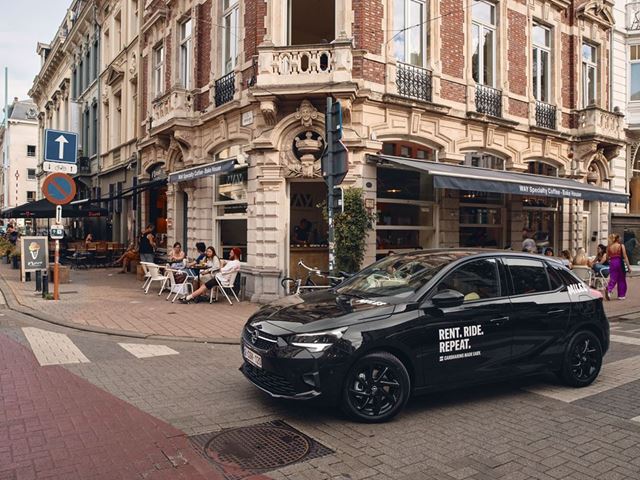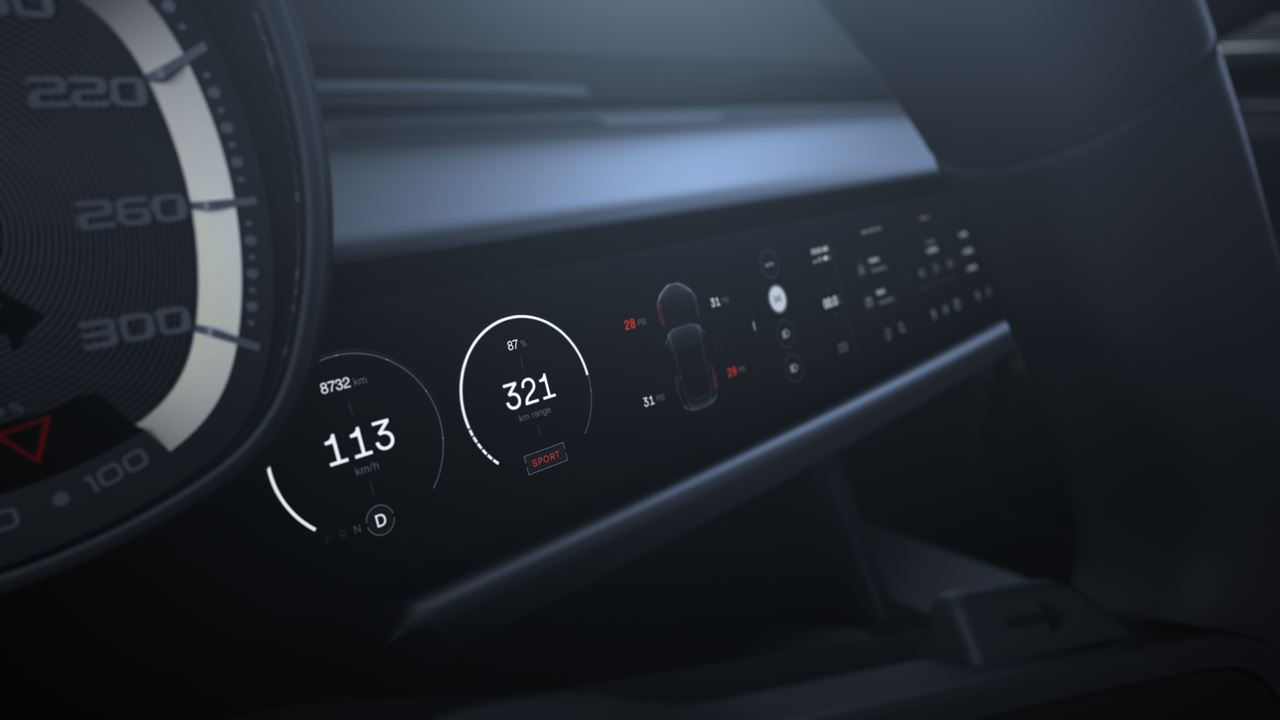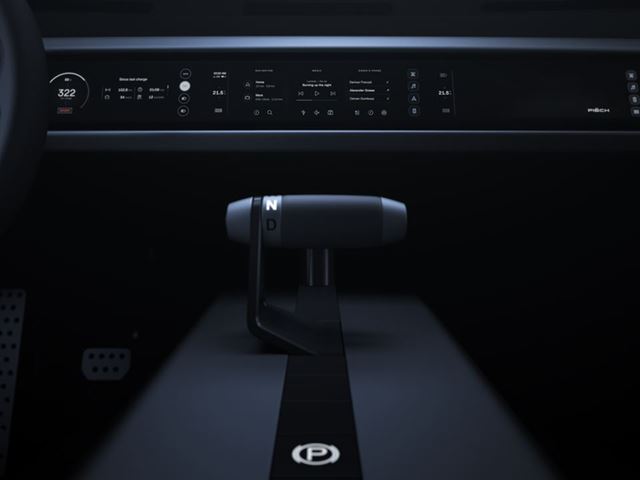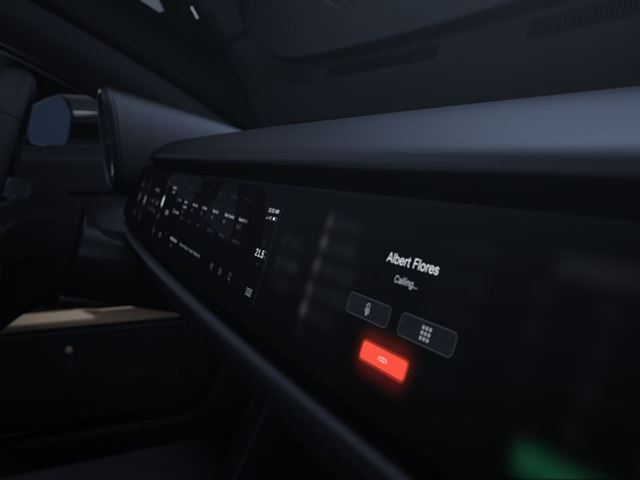
- Latest: Welcome to Auto Futures - Mobility News, Features, Exclusives and More...
- Latest: Li Auto Inc. Launches Li L6, A Five-Seat Premium Electric Family SUV
- Latest: Mercedes-Benz Unveils the SUSTAINEER - an Electric Last-Mile Delivery Solution
- Latest: XPENG & Volkswagen to Jointly Develop Electrical/Electronic Architecture in China
- Latest: Honda Unveils Ye - its Next-Generation EV Series for China
- Latest: The US Startup Rolling out Urban Curbside EV Charging - Voltpost's CEO
How Car-Sharing can Benefit From Integrating Personalisation - Incari's CEO Osman Dumbuya
Adrian Smith
- Mar 14 2023

Incari is a Germany-based startup that is creating a digital ecosystem that gives everyone authority over their personal data. The company was founded in April 2021, having evolved from the predecessor company CGI Studio. To date it has secured €15 million from investors.
Auto Futures has been talking to Osman Dumbuya, Incari's CEO.
The company's human machine interface (HMI) platform is called Incari Studio. It provides the digital tools needed to develop futuristic HMI systems.
"It was created because we believed there as a better, more inclusive way of collaborating between software developers and designers working on human machine interfaces (HMIs) be they in car dashboards, phones, and tablets or state-of-the-art eVTOLs," says Dumbuya.
Incari Studio can be used by anyone designing software and innovative HMIs for vehicles, industrial equipment, home energy systems, and more.
"It makes the process quicker and easier to unlock next generation technologies, such as in air haptics to ultrasonic buttons you can press in mid-air. To date it has been used for high-profile projects such as the sportscar Piech GT," he adds.
Incari developed the digital cockpit and the entire HMI for the electric Piëch GT in just six months.
Also in the mobility space, Incari is embarking on a research project with the German car sharing company, Miles Mobility. The partnership's goal is to better understand how a more customised experience can co-exist in a shared economy environment.
"For many the idea of being able to simply access a shared vehicle whenever you need it, is fast becoming established as the best personal transit option in cities. But due to the diversity of vehicles and their individual complexity, it is repeatedly a challenge for a user to quickly find his or her way around a new vehicle and feel comfortable with it."
MILES Mobility is the largest independent car sharing app in Germany, and has launched its services in Belgium.
"The project examines how drivers can have identical operational functionality in multiple vehicles from several vendors and how vehicles can seamlessly integrate in car entertainment and additional third-party applications when changing vehicles. We’re also looking into how customer data is handled and secured through trusted third parties so that it is not made available to the open market," explains Dumbuya.
As car sharing continues to rise in popularity, data security will also become an important issue.
"In a busy city you might have 10 or 20 people using the same vehicle in one day. That’s a lot of data synching with the vehicle and so it’s imperative that it must all be 100% secure," he notes.

Making it Personal
Dumbuya beleives in-cockpit personalisation will have a major impact for drivers and passengers.
"Driving is a personal experience. Everyone has their own preferences when it comes to factors such as the temperature of the vehicle, the positions of the seats, the choice of music, the volume of the speakers etc. The benefits of in cockpit personalisation are that drivers will use vehicles that already know how best to optimise that vehicle for their personal driving preferences," he says.
Cockpit personalisation allowis vehicle HMIs to synch with the user’s own devices such as a phone, tablet or a wearable.
"This not only allows for safer driving in the form of hands-free calls, but it also opens a whole new range of personalised benefits that were connected to the driver’s devices," says Dumbuya.
"For example, the vehicle will be able to link to cloud-based user profiles on social media and handle in-vehicle purchases such as paying for parking, fuel or charging at the touch of a button or a voice command. It could also leverage AI and machine learning to learn about driver habits and preferences and attach them to the user profile on the HMI. An example here might be accessing the calendar on your smartphone to realise where the driver needs to go and then automatically have a programmed route ready by the time they get into the car."

Fostering Collaboration Using Extended Reality
Extended reality is the collective name for computer-generated environments that combine the real and virtual world. The latest version of the Incari Studio supports extended reality.
"Capable of transforming everything from vehicle maintenance, to manufacturing and assembly training, extended reality in the automotive industry could change the way we build and use vehicles forever," says Dumbuya. He believes the mobility industry will see huge benefits from extended reality in the coming years.
"One of these areas will be augmented windshields which will make driving more convenient and safer for both drivers and pedestrians. This will be achieved by providing drivers with more information they need when driving whilst letting them simultaneously keep their eyes on the road."
"Extended reality will also foster better team collaboration when it comes to the development of the vehicles themselves. VR empowers automotive companies to bring specialists together from all over the world to collaborate in a virtual environment. Augmented reality glasses allow technicians to see the schematics of a vehicle overlaid on top of the car’s physical parts to better understand of how everything works together," he adds.

Collecting And Monetising Data
Finally, we asked Dumbuya what urban mobility in Europe will look like by the end of the decade.
"As cities strive to reduce pollution and congestion, on demand car sharing, using apps such as MILES Mobility will become more commonplace especially in major cities around the world. This will lead to innovation in the HMIs within the vehicles, which will become more intuitive and personalised experiences for drivers," he predicts.
"The ability of vehicles to collect, transmit and monetise data will increase too. A short drive has the potential to gather information on your location, the quality of the roads you’re on, the weather and pollution levels in your area, as well as traffic congestion - all this data has a financial value to someone, especially when shared in real time."
He adds: "For example, your location could be of interest to a nearby restaurant that wants to let you know about its new menu. The quality of the roads and air pollution levels could be valuable to the government or your local council. Information about the traffic jam you are in is beneficial to other drivers that want to avoid it."
"In the 2030’s our vehicles will be not only be gathering this information but sharing it to the companies and institutions that will glean value from it. In return the drivers that opt into this will receive micropayments or benefits in return for sharing this," concludes Dumbuya.
Popular Categories
